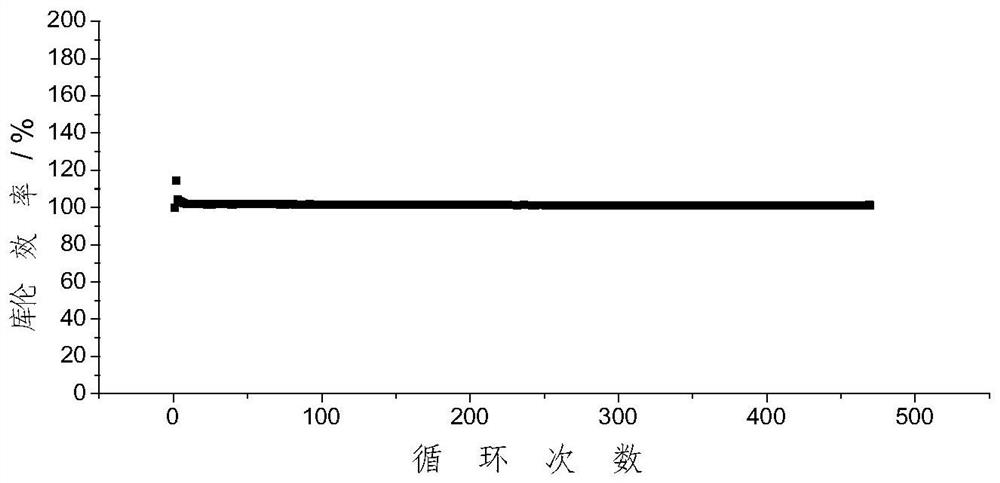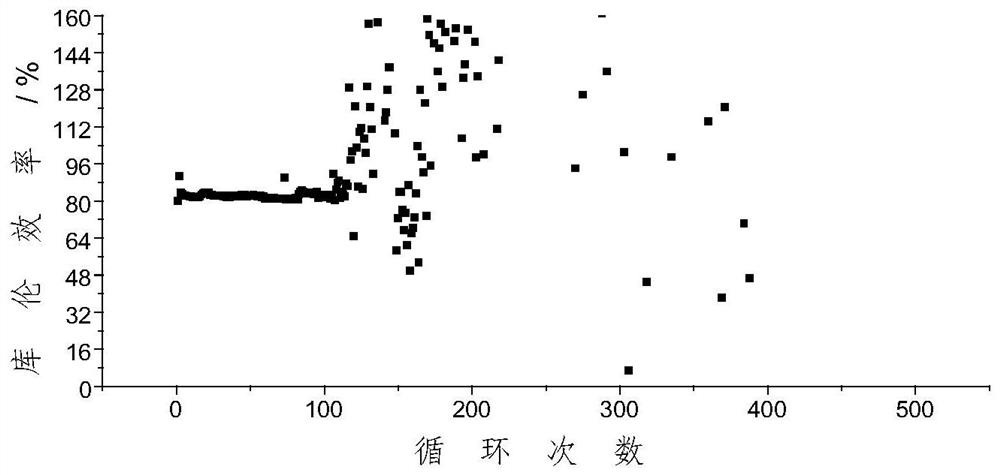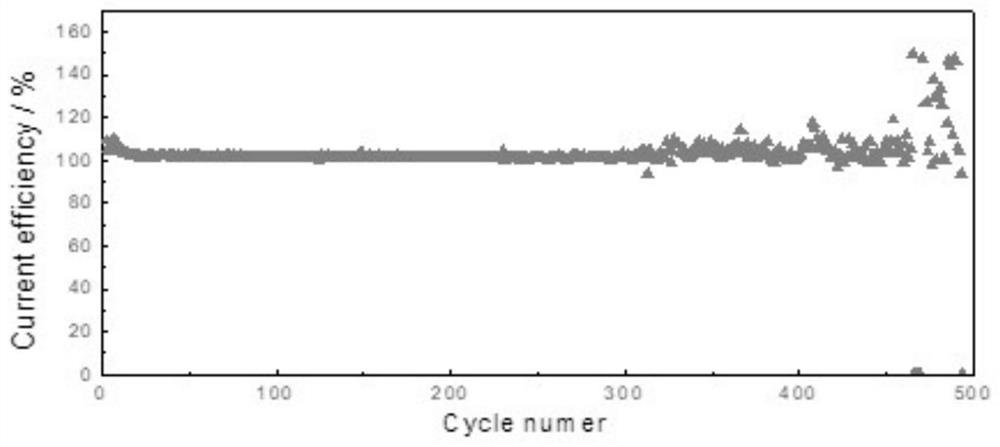A kind of polymer dispersion liquid and its application
A polymer and dispersion technology, which is applied in the repair/maintenance of secondary batteries, electrical components, electrochemical generators, etc., can solve problems such as battery performance degradation, and achieve lithium metal protection, strong practicability, technological and economic advantages Effect
- Summary
- Abstract
- Description
- Claims
- Application Information
AI Technical Summary
Problems solved by technology
Method used
Image
Examples
Embodiment 1
[0029] Add 1 g of lithium bistrifluoromethanesulfonimide to 7.5 g of ethylene glycol dimethyl ether, and stir vigorously to obtain a clear electrolyte. Add 2.5 g of dioxolane and perfluorosulfonic acid resin therein, and heat to 70° C. to polymerize dioxolane into polydioxolane. It is still a transparent liquid after polymerization. A lithium / copper model battery was assembled using the polymer dispersion obtained above as an electrolyte. The assembly and transfer method of lithium / copper model battery is as follows: Put stainless steel spring gasket, lithium sheet, electrolyte, Celgard2325 diaphragm, electrolyte, and pure copper foil discs into the 2016 button battery in sequence, and the amount of electrolyte dropped to 40uL, assemble the cell in an argon-filled glove box. The model battery is stamped and packaged with a press. The battery was tested in constant current charge and discharge mode. First control the capacity discharge, deposit 1mAh / cm on the surface of cop...
Embodiment 2
[0037] Add 1 g of lithium bisfluorosulfonimide to 7.5 g of polypropylene carbonate, and stir vigorously to obtain a clear electrolyte. 2.0 g of ethylene oxide was added therein, and the ethylene oxide was polymerized into polyethylene glycol by ultraviolet irradiation. It is still a transparent liquid after polymerization. Using the polymer dispersion obtained above as the electrolyte to assemble a lithium / copper model battery, the dissolution and deposition cycle life of metal lithium can reach 300 times, and the average coulombic efficiency is 97.5%;
Embodiment 3
[0039] Add 1 g of lithium bisfluorosulfonimide to 7.5 g of polypropylene carbonate, and stir vigorously to obtain a clear electrolyte. 2.5 g of ethylene oxide and 1 mg of azobisisobutyronitrile were added thereto, and the ethylene oxide was polymerized into polyethylene glycol by ultraviolet irradiation. It is still a transparent liquid after polymerization. Compared with using the polymer dispersion obtained above as the electrolyte to assemble the lithium / copper model battery, the dissolution and deposition cycle life of metal lithium can reach 300 times, and the average coulombic efficiency is 97.9%.
PUM
| Property | Measurement | Unit |
|---|---|---|
| degree of polymerization | aaaaa | aaaaa |
| degree of polymerization | aaaaa | aaaaa |
| current efficiency | aaaaa | aaaaa |
Abstract
Description
Claims
Application Information
 Login to View More
Login to View More - R&D
- Intellectual Property
- Life Sciences
- Materials
- Tech Scout
- Unparalleled Data Quality
- Higher Quality Content
- 60% Fewer Hallucinations
Browse by: Latest US Patents, China's latest patents, Technical Efficacy Thesaurus, Application Domain, Technology Topic, Popular Technical Reports.
© 2025 PatSnap. All rights reserved.Legal|Privacy policy|Modern Slavery Act Transparency Statement|Sitemap|About US| Contact US: help@patsnap.com



